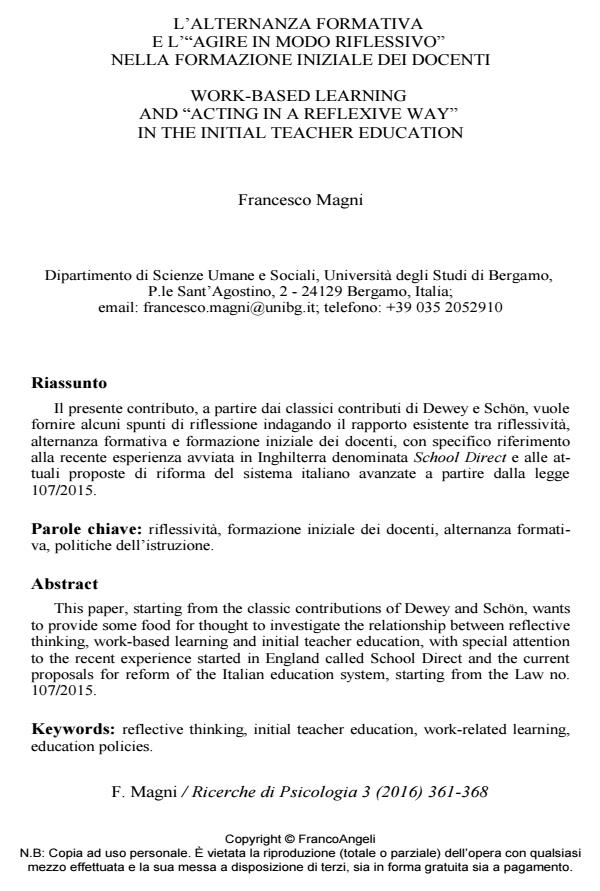L’alternanza formativa e l’"agire in modo riflessivo" nella formazione iniziale dei docenti
Titolo Rivista RICERCHE DI PSICOLOGIA
Autori/Curatori Francesco Magni
Anno di pubblicazione 2016 Fascicolo 2016/3
Lingua Italiano Numero pagine 8 P. 361-368 Dimensione file 187 KB
DOI 10.3280/RIP2016-003005
Il DOI è il codice a barre della proprietà intellettuale: per saperne di più
clicca qui
Qui sotto puoi vedere in anteprima la prima pagina di questo articolo.
Se questo articolo ti interessa, lo puoi acquistare (e scaricare in formato pdf) seguendo le facili indicazioni per acquistare il download credit. Acquista Download Credits per scaricare questo Articolo in formato PDF

FrancoAngeli è membro della Publishers International Linking Association, Inc (PILA), associazione indipendente e non profit per facilitare (attraverso i servizi tecnologici implementati da CrossRef.org) l’accesso degli studiosi ai contenuti digitali nelle pubblicazioni professionali e scientifiche.
Il presente contributo, a partire dai classici contributi di Dewey e Schon, vuole fornire alcuni spunti di riflessione indagando il rapporto esistente tra riflessivita, alternanza formativa e formazione iniziale dei docenti, con specifico riferimento alla recente esperienza avviata in Inghilterra denominata School Direct e alle attuali proposte di riforma del sistema italiano avanzate a partire dalla legge 107/2015.
Parole chiave:Riflessivita, formazione iniziale dei docenti, alternanza formativa, politiche dell’istruzione
Francesco Magni, L’alternanza formativa e l’"agire in modo riflessivo" nella formazione iniziale dei docenti in "RICERCHE DI PSICOLOGIA " 3/2016, pp 361-368, DOI: 10.3280/RIP2016-003005